As businesses continue to adapt to an ever-evolving digital landscape, Customer Relationship Management (CRM) systems have emerged as the cornerstone of success. CRM platforms are no longer just tools for tracking customer interactions; they have become integral to providing personalized experiences, optimizing sales, and enhancing customer loyalty. The rapid pace of technological advancements has also given rise to significant trends in CRM that are reshaping how organizations manage customer relationships. In this thought leadership article, we explore the latest CRM trends and technological advancements that are driving innovation and growth.
AI-Driven Automation and Predictive Analytics
Artificial Intelligence (AI) is transforming CRM by automating routine tasks and offering predictive insights. AI-powered CRMs can analyze customer data and behavior patterns to provide actionable recommendations, such as identifying the most promising leads or predicting churn rates. By automating data entry, AI also frees up time for sales teams to focus on more strategic tasks, such as relationship building.
Key Advancements
- Chatbots and Virtual Assistants: AI chatbots have evolved to offer more natural, human-like interactions, enabling businesses to provide 24/7 support and resolve queries faster.
- Predictive Lead Scoring: Using machine learning, CRMs can now analyze historical data to predict the likelihood of closing deals, allowing sales teams to prioritize high-value leads.
Omnichannel Customer Engagement
Today’s customers expect seamless experiences across multiple channels, from social media to email, chat, and phone. CRM platforms are increasingly supporting omnichannel engagement, allowing businesses to interact with customers on their preferred platforms while maintaining a single, unified view of all interactions.
Key Advancements
- Unified Customer View: CRMs consolidate data from various touchpoints into a single platform, giving businesses a holistic view of the customer journey.
- Social CRM: Integration with social media platforms allows companies to track and manage customer interactions on social channels, responding to feedback, reviews, and inquiries in real time.
Mobile-First CRM Solutions
With the growing need for flexibility and remote work, mobile-first CRM solutions have gained traction. Sales teams, in particular, benefit from accessing CRM features on mobile devices, allowing them to manage customer data, log interactions, and close deals on the go.
Key Advancements
- Mobile App Enhancements: Modern CRM apps now offer full functionality, including AI-driven insights and real-time collaboration, enabling seamless workflows from any location.
- Geolocation Services: Some mobile CRMs now use geolocation to provide contextual information about clients near the user, helping field sales teams optimize their routes and schedules.
Personalization at Scale
In the age of big data, personalization is no longer a nice-to-have but a business imperative. CRM systems now leverage data analytics to offer hyper-personalized experiences based on customer preferences, behaviors, and purchase history.
Key Advancements
- Dynamic Content Personalization: CRM systems can automatically tailor marketing messages and content to individual customers based on their behavior, ensuring relevancy and boosting engagement.
- Customer Journey Mapping: By tracking interactions across all channels, CRM platforms can help businesses identify key touchpoints and offer personalized solutions at each stage of the customer journey.
Integration with IoT (Internet of Things)
The Internet of Things (IoT) is expanding the scope of CRM by allowing businesses to collect real-time data from connected devices. This influx of data offers new insights into customer behavior, enabling proactive support and maintenance.
Key Advancements
- IoT-Enabled Predictive Maintenance: Businesses can use CRM systems to monitor IoT-connected products and predict when they might need maintenance, allowing companies to offer timely service and reduce downtime for customers.
- Proactive Customer Support: With IoT data integrated into CRM, companies can detect issues before they become problems, offering proactive solutions that enhance customer satisfaction.
Enhanced Data Privacy and Security Features
As data privacy regulations, such as GDPR and CCPA, become stricter, CRMs are increasingly focusing on enhanced security features to protect sensitive customer data. Businesses are investing in CRMs that offer built-in compliance tools, robust encryption, and consent management.
Key Advancements
- Automated Compliance Tracking: CRMs can now track and manage customer consent, ensuring businesses remain compliant with evolving data privacy laws.
- Data Encryption and User Authentication: With the rise of cybersecurity threats, CRMs are incorporating advanced encryption methods and multi-factor authentication to protect against data breaches.
Low-Code/No-Code CRM Customization
One of the most significant trends in CRM technology is the rise of low-code and no-code platforms, allowing businesses to customize their CRM systems without needing extensive technical expertise. This empowers teams to build custom workflows, automate tasks, and integrate with other business applications quickly and easily.
Key Advancements
- Drag-and-Drop Interfaces: Low-code CRMs offer intuitive interfaces that allow users to create workflows and design dashboards without coding.
- Customizable Integrations: No-code solutions enable businesses to integrate their CRM with other tools, such as marketing automation platforms, accounting software, and ERP systems, without relying on developers.








